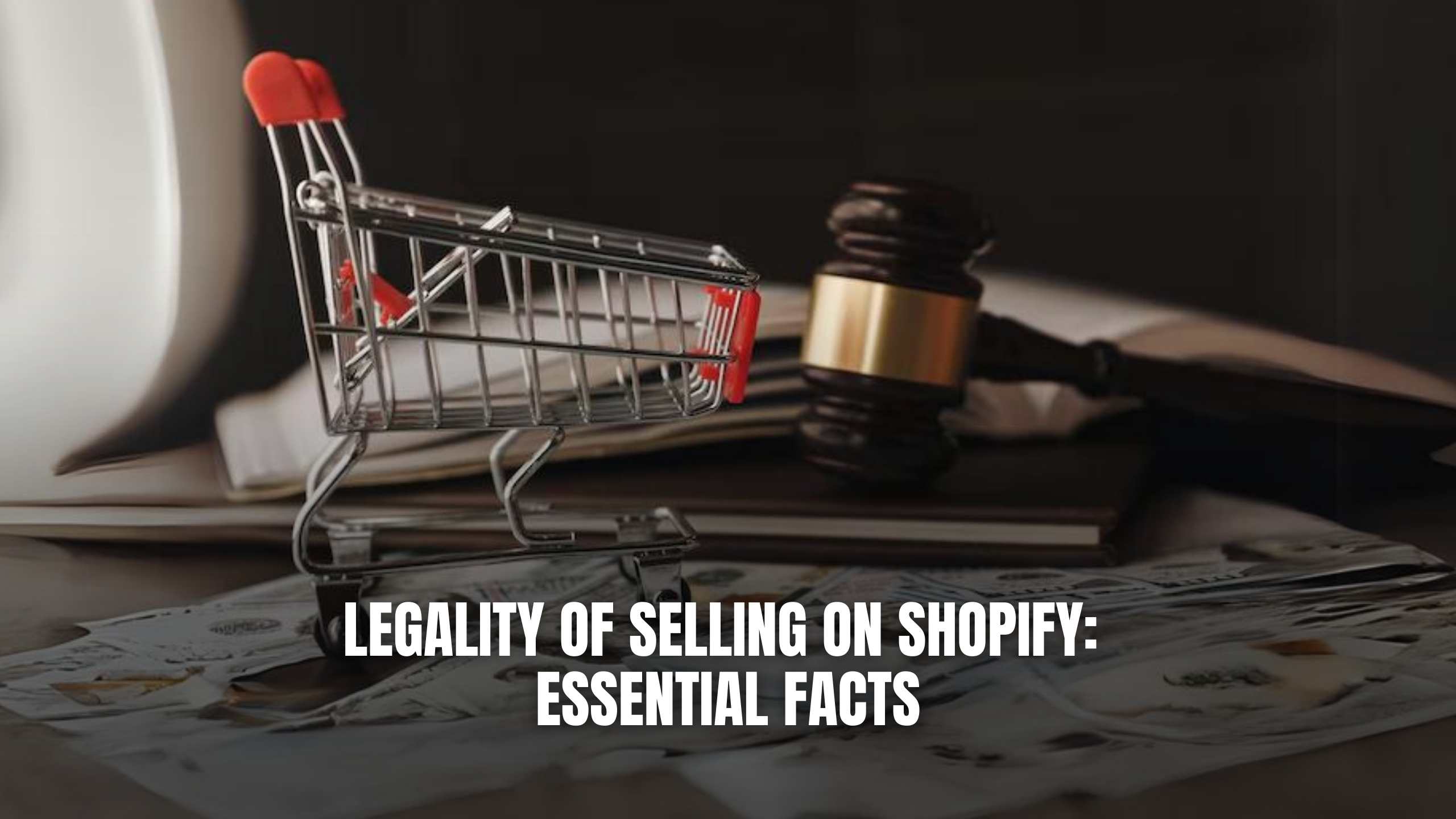Legality of Selling on Shopify: Essential Facts


Legality of Selling on Shopify: Essential Facts
Selling products on Shopify has become increasingly popular due to its user-friendly interface and robust e-commerce features. However, navigating the legal aspects of selling on Shopify is crucial to ensure compliance with regulations and protect your business. In this comprehensive guide, we’ll explore the essential facts about the legality of selling on Shopify.
1. Understanding E-Commerce Regulations
Before launching your online store on Shopify, it’s essential to understand the e-commerce regulations that govern your business. These regulations may vary depending on factors such as your location, the type of products you sell, and your target market. Familiarize yourself with laws related to consumer protection, privacy, taxation, and intellectual property rights to ensure compliance and avoid legal issues down the line.
2. Product Compliance and Liability
When selling physical products on Shopify, you are responsible for ensuring that your products comply with relevant safety standards and regulations. Conduct thorough research to determine any applicable product safety requirements, such as certifications, labeling, and packaging standards. Additionally, consider product liability insurance to protect your business in case of any product-related accidents or disputes.
3. Intellectual Property Protection
Protecting your intellectual property rights is essential when selling on Shopify to prevent unauthorized use of your brand assets and products. Consider trademarking your brand name, logo, and any unique product designs to establish legal ownership and prevent infringement by competitors or counterfeiters. Be vigilant in monitoring your intellectual property and take swift action against any instances of infringement or unauthorized use.
4. Tax Compliance and Reporting
Tax compliance is a critical aspect of selling on Shopify, especially when operating in multiple jurisdictions or selling internationally. Familiarize yourself with sales tax laws and regulations in the regions where you conduct business and ensure proper tax collection, reporting, and remittance procedures. Consider using Shopify’s built-in tax calculation features or integrating third-party tax management apps to automate tax compliance tasks and minimize errors.
5. Data Protection and Privacy
As an online seller, you must prioritize data protection and privacy to safeguard your customers’ sensitive information. Ensure compliance with data protection laws such as the General Data Protection Regulation (GDPR) by implementing robust data security measures, obtaining consent for data collection and processing, and providing clear privacy policies on your Shopify store. Regularly review and update your privacy practices to address any changes in regulations or industry standards.
SaaS Solutions for E-Commerce Compliance
To streamline your e-commerce operations and ensure legal compliance, consider leveraging the following SaaS products:
- TaxJar: Automate sales tax calculations, filing, and remittance to simplify tax compliance for your Shopify store.
- LegalZoom: Access legal services and resources to help you navigate complex legal issues, such as business formation, contracts, and intellectual property protection.
- Shopify Plus: Upgrade to Shopify’s enterprise-level e-commerce platform for advanced features, customizable solutions, and dedicated support tailored to large-scale businesses.
- Trustpilot: Collect and display customer reviews on your Shopify store to build trust and credibility with potential buyers while enhancing your online reputation.
- Bold Subscriptions: Implement subscription-based selling models on Shopify to offer recurring billing options and manage customer subscriptions seamlessly.
Conclusion
Navigating the legality of selling on Shopify involves understanding and complying with various regulations related to e-commerce, product compliance, intellectual property, taxes, and data protection. By staying informed about legal requirements and leveraging SaaS solutions to streamline compliance processes, you can mitigate risks and ensure a smooth and legally sound operation for your Shopify store.
Ready to Ensure Legal Compliance for Your Shopify Store?
Sign up for free at Subscribed.fyi to access exclusive deals on essential SaaS tools for e-commerce compliance and management. Unlock secret deals on tax automation, legal services, customer reviews, and more to streamline your Shopify business operations and stay ahead of legal requirements.
Relevant Links:








